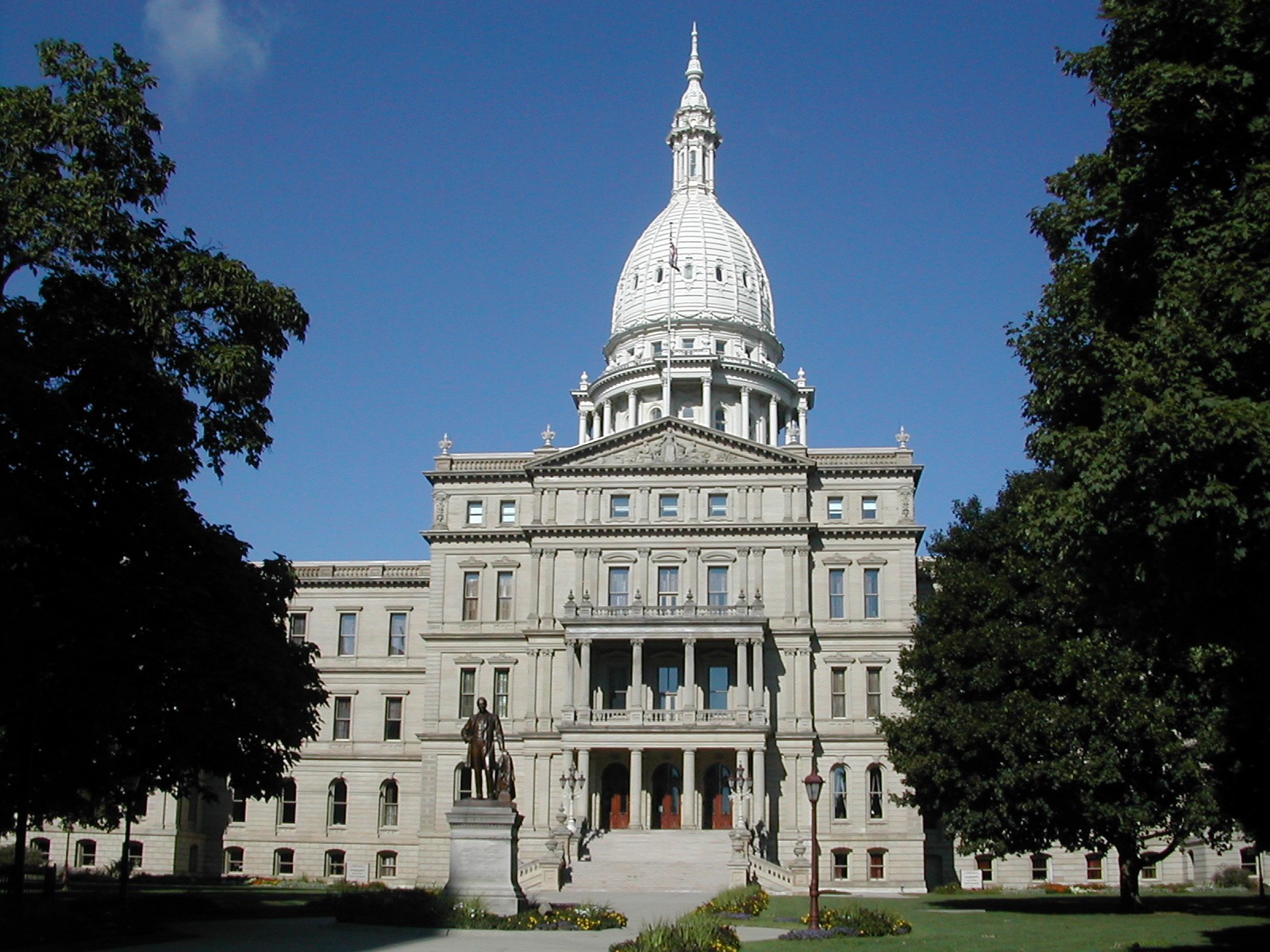Rep. Tim Walberg (R-MI7)
states that, “20% of the farm bill for the past several farm bills has been
‘production agriculture’ and 80% has been ‘welfare food assistance’.”[1]
“Those who
forget history are doomed to repeat it.” ~ George Santayana
It isn’t just the
Republicans in Congress like Tim Walberg that have forgotten history, it is our
farming population which was once demographically composed of many low-income,
working class people but has become composed of a much smaller number of solid,
upper and upper middle class, owners of large family, very large family and very-very-large
non-family corporate farms.
Modern Americans don’t
understand why food assistance programs for low income families are included in
the farm bill. We do not understand because we have forgotten our history.
Farm assistance programs
were instituted in 1933 when over 20% of our population worked on farms. [2]
Farm assistance was essential support for an industry that employed one person
in five.
 Our farmers were growing
more food than our consumers could afford to purchase and the price of
agricultural commodities fell through the floor. A money supply problem was
misidentified as an excess production problem and farmers were literally paid
to reduce production.
Our farmers were growing
more food than our consumers could afford to purchase and the price of
agricultural commodities fell through the floor. A money supply problem was
misidentified as an excess production problem and farmers were literally paid
to reduce production.
Today, less than 1% are
farmers and less than half of them rely on farming as a primary income source.[3]
Farm assistance programs
have evolved to meet various needs of farmers and to ensure that farming is
profitable. For example, the current farm bill will subsidize between 38% and
80% of the cost of crop insurance premiums costing taxpayers more than $84
billion.[4]
The same farm bill will pay
farmers more than $61.5 billion to let land rest between crops and another
$58.7 billion in direct payment to provide farmers with a “safety net” and
offset risks such as market price fluctuation and low yields due to weather.[5]
In 1938 our first food assistance
bill was passed and food stamps came into existence.
Food stamps were money!
Recall that the reason prices of agricultural commodities had fallen through
the floor had nothing to do with demand for food and everything to do with an
insufficient quantity of money available to those who wanted and needed food.
Food assistance programs
have always been about making sure that a market exists for farm commodities.
Some readers may see this
as a cynical view of human motivation, but I believe that it is a pragmatic
view. In fact almost every form of assistance for low-income individuals and
households is at its root and core a kind of subsidy for business interests to
ensure that business is profitable for a few owners in a marketplace largely
populated low-income workers.
As an example, the
Affordable Care Act subsidizes health insurance premiums for low and moderate
income families. This is not substantially different that the farm bill
subsidies for crop insurance. The subsidy itself is not for the low income
individual or family or for the farmer; it is for the insurance company that
could not sell its insurance profitably without a subsidy.
Food assistance programs
for low-income individuals and families are the largest portion of the farm
bill and will cost more than $764 billion.[6]
Opponents of food assistance are quick to point out that this program would
make up 78.5% of the appropriation as passed with bipartisan support by Senate;[7] the
entire food assistance programs was stripped out by Republicans in the House.[8]
Food assistance helped 47
million low-income Americans in 2012; other farm assistance helped about 2.2
million farms. In other words, the farm bill spends about $1,600 for each
person receiving food assistance and about $94,750 on assistance for each farm.
Wow!
You never hear Republicans
complaining about how farmers should do a better job of managing their farm
business so that they can earn a reasonable profit without government
subsidies. And, I have never heard a Republicans complain that crop insurance
companies should manage their business better so that farmers can afford
insurance without subsidies from the government. Isn’t it odd that you never
hear about how farmers should budget better for good and bad growing years or
how a competitive marketplace for commodities needs no subsidies from the
government?
For the most part food
assistance recipients don’t choose to be low-income individual and
householders, they simply aren’t paid enough by the business owners that employ
them or the so-called job creators haven’t created enough jobs to employ them
all at a living wage.
And low-income individuals
and households are not wasting food assistance either.
According to a recent
survey, 25% of Americans spend less that $100 per week on food; a third of them
spending less than $50 per week. These are for the most part the low-income
individuals and households who receive food assistance and they are getting by
on amazingly little food.
The same survey reports
that 10% of Americans spend $300 or more
per week on food.[9]
Let me reemphasize the phrase “or more”;
the more an individual or family earns the more they tend to spend. And $300 is
six times as much as many low-income earners spend!
A 2009 study indicated that
households with incomes of $150,000 and over spent on average almost three
times as much on food as households with less than $70,000 incomes.[10]
And $70,000 isn’t low-income!
My point is that there is
no defense for the position of Republicans like Tim Walberg who call assistance
for farmers, companies that insures crops, various programs for commodity
pricing or programs that lend to farmers or guarantee farm loans calling them
“productive” when they are just “subsidies” or “welfare” for people in the farm
business.
Also, it is dishonest to
point out that food assistance makes up 78.5% of the farm bill without also
pointing out that the average recipient of food assistance only realizes about
$1,600 in benefits annually compared to the average benefit per farm which is
roughly $94,750.
The farm bill that emerged
from the Senate with bipartisan support was a pathetic! It continued to prop up
the agribusiness sectors with money for farmers, insurers, market makers and
lenders but it pulled the rug right off from under low income individuals and
households.
The farm bill that emerged
from the House was so socially unjust that it should have brought the people
into the streets! What will it take to bring working class people to the point
of outrage? How much indignity must America
We talk about expanding
programs like Medicaid or food assistance; we talk about raising the minimum
wage; we talk about extending unemployment; we talk about better education for the
unemployed or underemployed; but we don’t strike the root or the core of the
problem … the money system and the flight of money from the bottom where human
labor earns it to the top where a privileged class collects interest by lending
us all of the money in circulation while avoiding their duty to pay for labor,
materials, technology or taxes.
Working class people should
not have to beg for subsidies and the owners should be able to earn their way
without subsidies. Ironic that we deny welfare to those who need it most and
grant welfare to those who insist that there is no need for it?
[1] WIN 98.5
(Interview), Congressman Walberg answers Stabenow's criticism on House Farm
Bill passage, Friday, July 12, 2013, 2:27 PM EDT. See < http://wincountry.com/news/articles/2013/jul/12/congressman-walberg-answers-stabenows-criticism-on-house-farm-bill-passage/ >.
[2] Source:
Growing A Nation: The Story of American Agriculture, "Historical Timeline
— Farmers & the Land", extracted July 14, 2013. See < http://www.agclassroom.org/gan/timeline/farmers_land.htm
>.
[3] Source: U.S.
Environmental Protection Agency > Agriculture > Ag 101 > Demographics,
extracted July 14, 2013. See < http://www.epa.gov/agriculture/ag101/demographics.html
>.
[4] Source:
Congressional Research Service, "What Is the Farm Bill?" June 21,
2013. See < http://www.fas.org/sgp/crs/misc/RS22131.pdf
>.
[5] Source:
Congressional Research Service, "What Is the Farm Bill?" June 21,
2013. See < http://www.fas.org/sgp/crs/misc/RS22131.pdf
>.
[6] Source:
Congressional Research Service, "What Is the Farm Bill?" June 21,
2013. See < http://www.fas.org/sgp/crs/misc/RS22131.pdf
>.
[7] S. 954:
Agriculture Reform, Food, and Jobs Act of 2013. See < http://www.govtrack.us/congress/bills/113/s954
>.
[8] H.R. 2642:
Federal Agriculture Reform and Risk Management Act of 2013. See < http://www.govtrack.us/congress/bills/113/hr2642
>.
[9] Source: Gallup Wellbeing,
"Americans Spend $151 a Week on Food; the High-Income, $180", August
2, 2012. See < http://www.gallup.com/poll/156416/americans-spend-151-week-food-high-income-180.aspx
>.
[10] Source:
U.S. Census Bureau,
Statistical Abstract of the United
States : 2012, "Income, Expenditures,
Poverty, and Wealth", page 451, Table 688, "Average Annual
Expenditures of All Consumer Units by
Income Level: 2009". See < http://www.census.gov/compendia/statab/2012/tables/12s0688.pdf
>.









